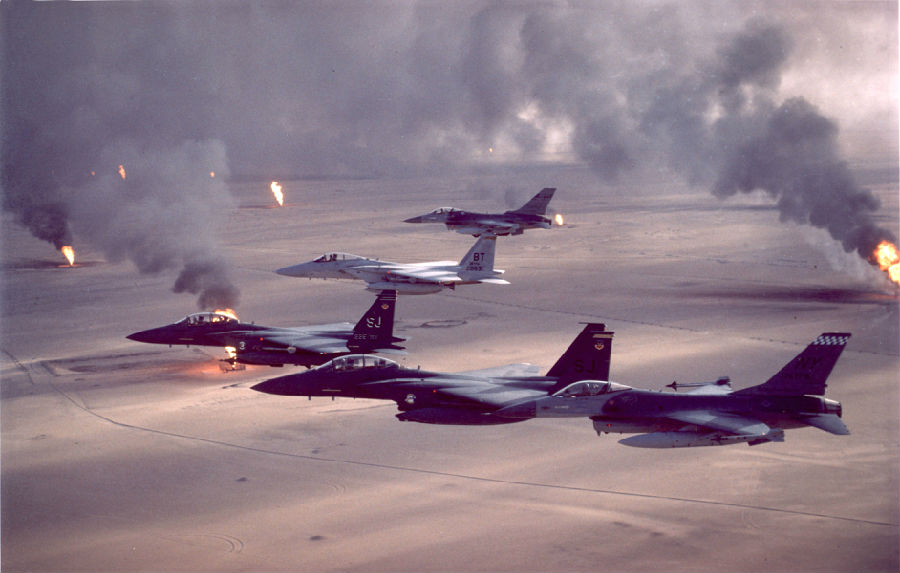Segment 29e: Conclusions. Why we fight.
29段第五部分:結論。我們作戰的原因。
America's wars have been variably meant with some opposition on the home front.
美國參戰是確實總會在國內遇到反對的聲音。
Conversely, American presidents have given some controversial reasons for going to war.
相反的是,美國總統給出的參戰原因經常會有爭議。
We've already seen how Lyndon B. Johnson manipulated the 1964 Tonkin Gulf Incident to justify escalating the Vietnam War.
我們已經知道林登·貝恩斯·約翰遜如何操縱了1964年的東京灣事件來為自己擴大越戰尋找理由。
George H.W. Bush successfully received a mandate from the Senate to pursue the Gulf War in 1991, but it was pretty close.
喬治·赫伯特·沃克·布什1990年成功地從參議院獲得了進行海灣戰爭的決議,不過其實投票數很接近。
Even after the Gulf War's successful conclusion, Bush was accused of fighting for oil,
即使是海灣戰爭勝利后,還有人指責他是為了石油而戰,

as his son George W. Bush would be accused of doing more than a decade later.
就像小布什10多年后被指責的一樣。
Bill Clinton's interventions in Bosnia and Kosovo were both done, not in the name of the United States,
比爾·克林頓現在波斯尼亞和科索沃的干涉都不是以美國,
but in the name of NATO, even though no NATO member was being threatened.
而是以北約的名義進行的,盡管沒有一位北約成員受到了威脅。
It's just that the UN was not giving President Clinton the green light he wanted, so the next best thing was a green light from NATO.
只是因為聯合國沒有給克林頓想要的綠燈,他就退而求其次拿到北約的綠燈。
To this day, George W. Bush is still coming up with various ways of justifying his invasion of Iraq.
直到現在,小布什還在用各種方式來解釋自己入侵伊拉克的行動。
Unfortunately, his double talk on this topic is an American presidential tradition, participated in by presidents of both parties.
不幸的是,他的這種含糊其辭正是美國總統的一貫作風,兩黨的總統都會這樣做。











